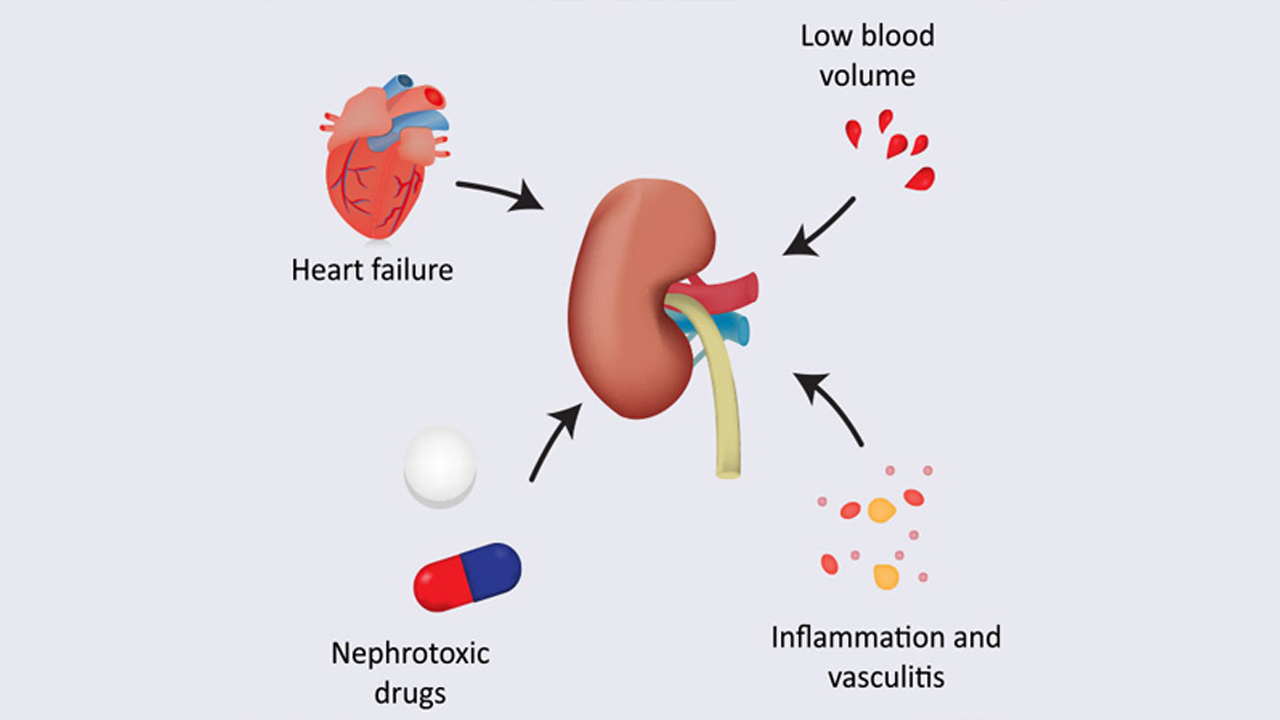Kidney failure, also known as renal failure, is a serious medical condition in which the kidneys are no longer able to filter waste products from the blood. This can lead to a build-up of toxins in the body, which can cause a range of health problems. In this blog post, we will discuss the causes, symptoms and treatment options for kidney failure.
Causes of Kidney Failure: Kidney failure can be caused by a number of different factors, including:
- Diabetes: Diabetes is a leading cause of kidney failure. High blood sugar levels can damage the kidneys over time, eventually leading to kidney failure.
- High blood pressure: High blood pressure can also cause damage to the kidneys, leading to kidney failure.
- Kidney disease: Chronic kidney disease, which can be caused by a variety of factors, can eventually lead to kidney failure.
- Infections: Certain infections, such as kidney infections, can cause damage to the kidneys.
- Medications: Some medications, such as NSAIDs, can cause damage to the kidneys if taken in large doses or for extended periods of time.
Symptoms of Kidney Failure: The symptoms of kidney failure can vary depending on the severity of the condition, but some common symptoms include:
- Fatigue and weakness: Kidney failure can cause fatigue and weakness due to the build-up of toxins in the body.
- Swelling: Kidney failure can cause swelling in the legs, ankles, feet, and other parts of the body.
- Shortness of breath: Kidney failure can cause shortness of breath due to fluid build-up in the lungs.
- Nausea and vomiting: Kidney failure can cause nausea and vomiting due to the build-up of toxins in the body.
- Changes in urine output: Kidney failure can cause changes in urine output, such as decreased urine output or frequent urination.
Treatment Options for Kidney Failure: There are several treatment options for kidney failure, including:
- Dialysis: Dialysis is a treatment that uses a machine to filter waste products from the blood when the kidneys are no longer able to do so.
- Kidney transplant: In some cases, a kidney transplant may be necessary if the kidneys are no longer functioning properly.
- Medications: Medications can be used to help manage the symptoms of kidney failure and reduce the risk of complications.
Lifestyle changes: Making lifestyle changes, such as eating a healthy diet and getting regular exercise, can help improve kidney function and reduce the risk of complications
Prevention of Kidney Failure: There are several steps that can be taken to prevent kidney failure, including:
- Managing underlying health conditions: Managing conditions such as diabetes and high blood pressure can help prevent kidney failure.
- Avoiding medications that can damage the kidneys: Avoiding medications such as NSAIDs and other pain relievers that can damage the kidneys can help reduce the risk of kidney failure.
- Staying hydrated: Staying hydrated can help reduce the risk of kidney failure by keeping the kidneys functioning properly.
In conclusion, kidney failure is a serious medical condition that can have a range of causes and symptoms. It is important to seek medical attention right away if you are experiencing symptoms of kidney failure. With prompt treatment and lifestyle changes, it is possible to manage kidney failure and prevent complications. By taking steps to prevent kidney failure, people can improve their overall health and wellbeing and reduce their risk of serious health problems.






